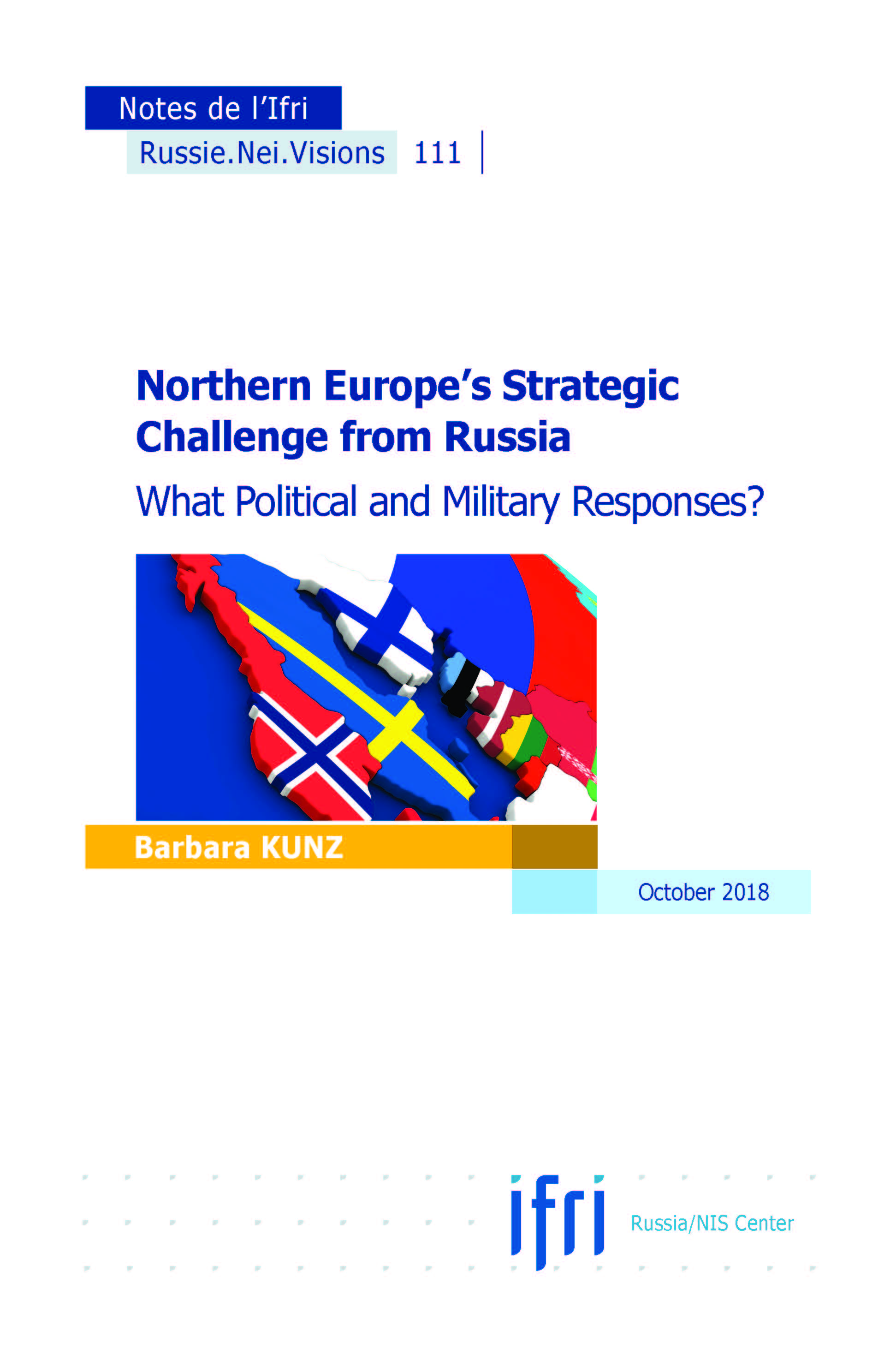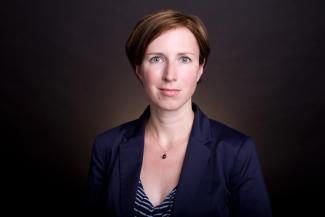Northern Europe’s Strategic Challenge from Russia: What Political and Military Responses?

The return of more conflictual relations between Russia and the West following Russia’s intervention in Eastern Ukraine and its annexation of Crimea has led to a deterioration in the strategic environment for Northern European countries, particularly in the Baltic Sea Region and the Arctic.
In Nordic capitals, this climate of tension is perceived as the “new normal” to which one must adapt by implementing an effective strategy of deterrence. This adaptation is taking place as much on a national scale, at the level of defence policies and doctrines, as in bilateral and multilateral settings, principally transatlantic and in a NATO context.
Barbara Kunz is a Research Fellow at the Study Committee for Franco-German relations (Cerfa) within the French Institute of International Relations (Ifri).
Download the full analysis
This page contains only a summary of our work. If you would like to have access to all the information from our research on the subject, you can download the full version in PDF format.
Northern Europe’s Strategic Challenge from Russia: What Political and Military Responses?
Related centers and programs
Discover our other research centers and programsFind out more
Discover all our analysesRussia, the Palestinians and Gaza: Adjustments after October 7th
The Soviet Union (USSR), and subsequently the Russian Federation as its internationally recognized legal successor, has consistently sought to play a visible role in efforts to resolve the Israeli-Palestinian conflict.
Deathonomics: The Social, Political, and Economic Costs of War in Russia
The report attempts to outline and examine a truly new phenomenon in Russian society, dubbed “deathonomics”—the making of a mercenary army against the backdrop of the Kremlin’s war in Ukraine, eventually replacing both the Soviet (conscript) and early new Russian (contract) armies. It notes that, by the end of 2023, this trend had turned the military service into one of the highest-paying professions in the country, something not seen in Russia on such a scale since the late 17th century.
Russia's Asia Strategy: Bolstering the Eagle's Eastern Wing
Among Russia’s strategic priorities, Asia traditionally played a secondary role compared to the West. In the mid-1990s, then Foreign Minister Yevgeny Primakov initiated a rapprochement with China and India. Then, in 2014, deteriorating relations between Russia and the West prompted Moscow to begin its “great pivot to the East”.
Kazakhstan After the Double Shock of 2022: Political, Economic and Military Consequences
The year 2022 represented a dual shock for Kazakhstan. In January, the country faced its most severe political crisis since independence, followed in February by Russia’s full-scale invasion of Ukraine, which cast uncertainty over the borders of post-Soviet states. These consecutive crises profoundly shaped Kazakhstan’s domestic and foreign policy.













